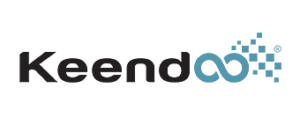
How to control supplier data to ensure that product data is up to date?
"A market of €8 billion that is growing by 17%, an opportunity to be seized. Jean Villerest, Soprodal's sales director, and Diane Montagny in marketing, are delighted with their decision to develop an 'organic' range. It has been a great success and volumes are increasing!
But there is a small downside: in purchasing, the search for suppliers is becoming increasingly difficult to manage. Especially since Soprodal wants to play the local organic card. We need to find a solution to create reference systems for suppliers and organic raw materials...
Excel files are no longer enough!
There are already more than 30 producers when Samia Neaux, from the Quality Department, asks Marc Chandon, the head of the purchasing department, to meet her:
- We can't work like this any more! No one knows what is referenced or not, it is impossible to find the validity dates of the organic certificates...
- Don't get upset, they are all organic, I guarantee it, no worries! assures Marc Chandon.
- Organic, organic, it's easy to say! For what activity, what production and what validity dates, can you tell? I don't".
Samia NEAUX takes out her computer and opens a magnificent Excel table. Marc CHANDON also takes out his Excel table, designed differently. Even the names of the producers are different: how can these two tables be compared? The meeting drags on: one hour to defend each one's logic and two hours to finally put together a shared table.
Data control requires shared repositories and validation processes formalised by workflows
Two days later, the certification body called: "Great, your new organic reference. But we never got the new label to proofread! Dismay! Since theshrimp affair, Samia thought that the validation processes were very well organised. Except that the proofreading, sending and validation of the labels to the organic certification body had not been integrated into the workflow... Constructive, the two managers lowered the pressure and tried to learn from the incident: it was becoming urgent to build upstream reference systems, shared and subject to validation processes via clearly defined workflows, in order to manage the referencing of suppliers, raw materials, certificates and other quality documents
Marc and Samia send an email to Mably, the CIO: "Where are we with the Keendoo PLIM project? The control of upstream data is becoming increasingly complicated: our Excel files are no longer sufficient...
